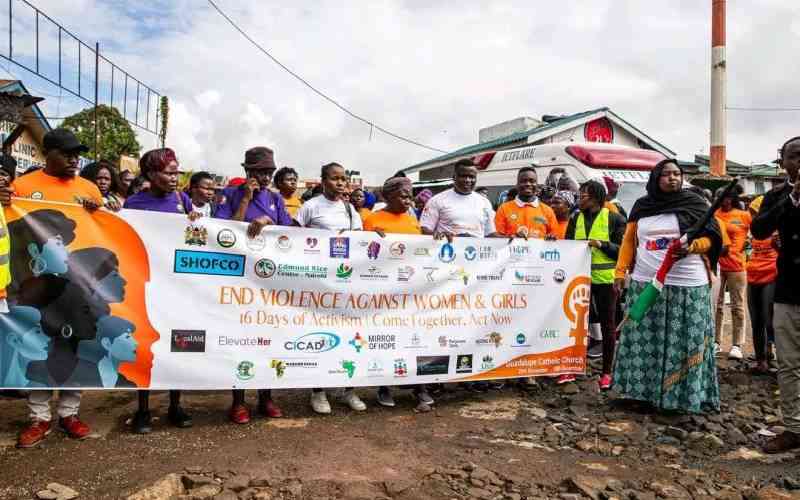×
The Standard e-Paper
Join Thousands Daily

An NGO plans to construct five safe houses in five counties in a bid to support victims of gender violence.
As the 16 Days of Activism Against Gender Violence continues, Shining Hope for Communities (Shofco) said it will also strengthen 48 existing ones across 15 counties.